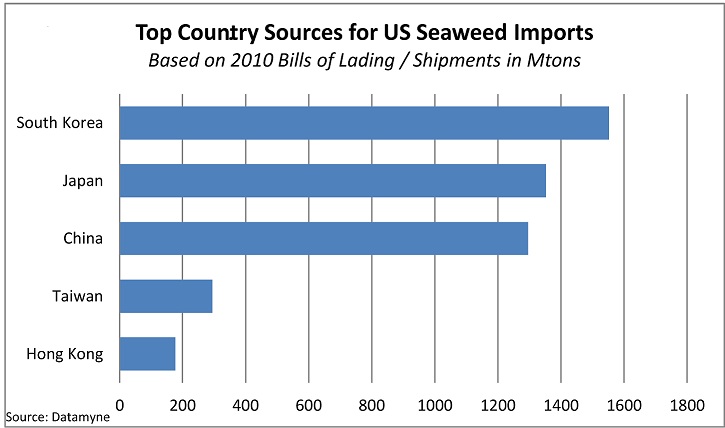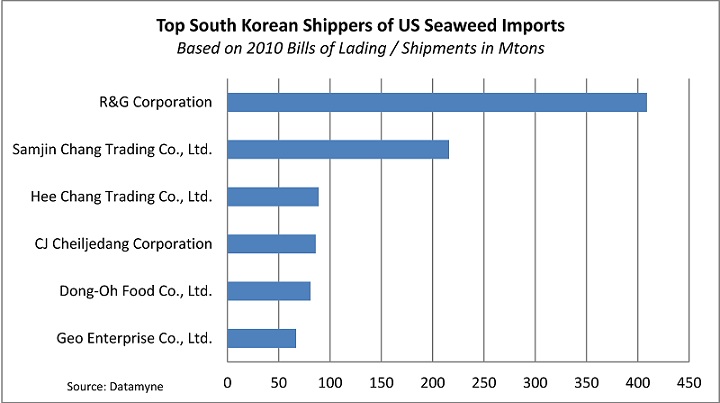Governments issue orders to test or suspend imports
As Japan reports radioactive contamination of plant and animal foodstocks in the prefectures nearest the still-to-be-contained nuclear reactors at Fukushima Daiichi, countries around the world are moving to block Japanese food imports.
The US was among the first, issuing FDA IMPORT ALERT #99-33 on March 24. But, according to Reuters, Australia, Canada, China, France, Germany, Hong Kong, South Korea, Malaysia, the Netherlands, the Philippines, Singapore, Taiwan, and the UK have stepped up inspections or suspended imports of food products from Japan.
Food is well down the list of Japanese exports, representing less than .6% of total value in 2010, according to Datamyne trade data. However, some specialty foods will be missed in some markets. Seafood (mostly flown into US markets) is one example.
Seaweed is another.
As we noted in Japan Fall-out, fears that radiation from Fukushima will reach the US East Coast may not be entirely rational, but they’re real enough to cause a New York run on potassium iodide and the next-best, “all natural” antidote to radiation poisoning, seaweed. Ironically, the seaweed that was swept away in the panic-buying probably came from Japan, one of the world’s leading sources for the ingredient and its various food preparations (although not the top source for seaweed products in the U.S. – see the graph below).
Markets don’t always respond rationally – nor uniformly: Australia has halted imports of seaweed from Japan as a precaution, but it is not included in the FDA alert. Trade data can help in tracking market swings and in locating alternate sources such as the Korean exporters shown here (or, if you’re a supplier, customers left high-and-dry). Ask us to demonstrate how.





